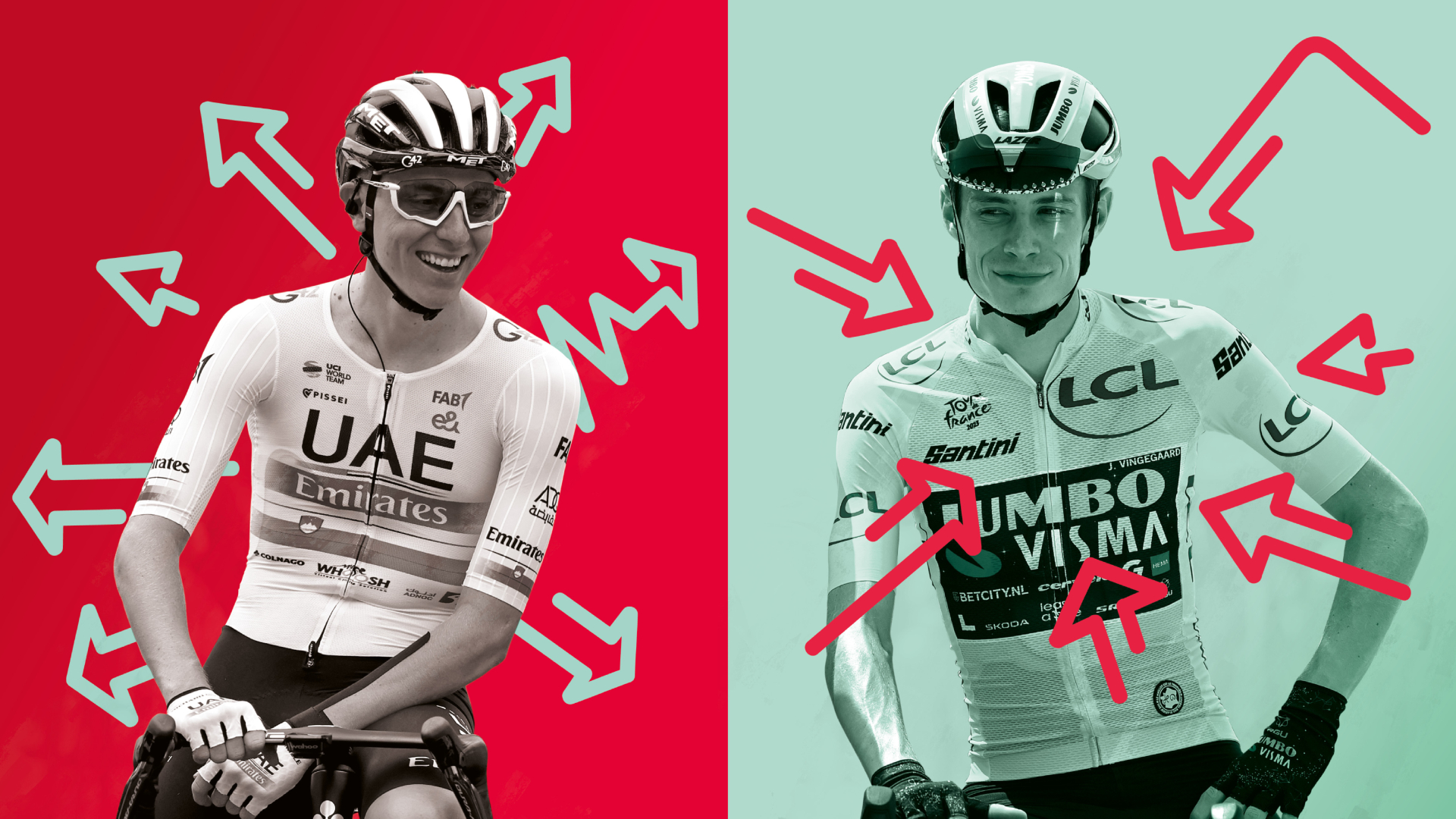
It’s difficult to gauge the personality profile of the modern-day cycling prodigy. In one corner, you have the happy-go-lucky, chatty and cheery persona of Tadej Pogačar; in the other, you have the more withdrawn, shy and socially awkward Jonas Vingegaard. Never mind polarized training, character types at the top level seem to have become polarized too. It poses an interesting question: introvert or extrovert – who’s more likely to achieve success as a cyclist? Should we aspire to be japing and jovial like Pogi, or pensive and poker-faced like Jonas?
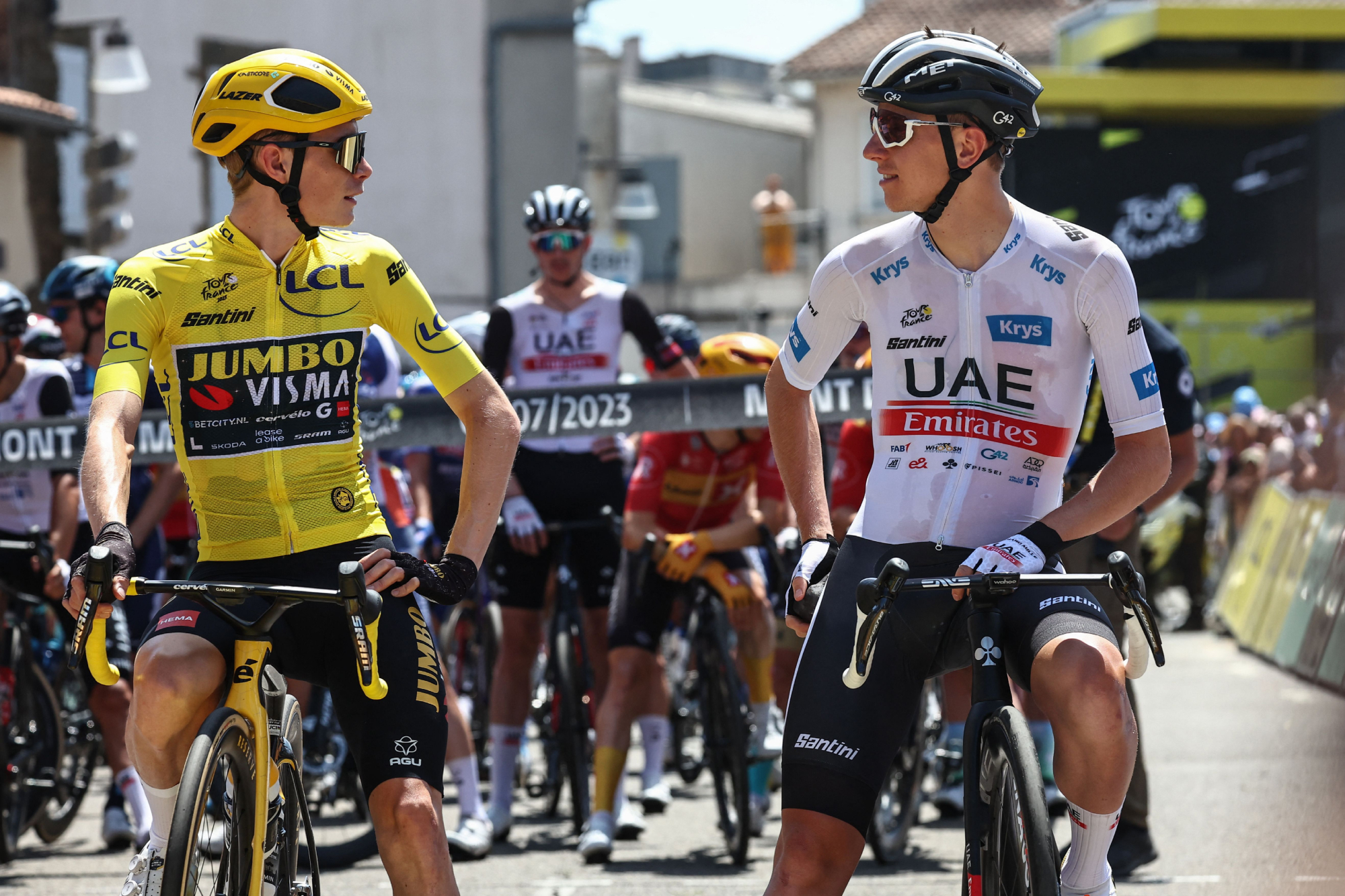
OK, so it’s the legs that do the talking when the going gets tough, but personality is a crucial factor in life, and particularly in career success, for all of us. Introversion and extroversion were concepts introduced by Swiss psychoanalyst Carl Jung in 1921. The basic difference, he explained, was that introverts get their energy and stimulation from within, while extroverts get theirs from the external world.
Introverts – the Vingegaards and Chris Froomes of the world – therefore tend to thrive on solitary activities such as long, solo training rides. They are less comfortable in social situations and reluctant to draw attention to themselves, and this discomfort can be misconceived as rudeness or coldness. However, there is evidence that introverts can process larger amounts of information, being more thoughtful and attentive. In a bike racing context, they’re more likely to make cooly calculated, rational decisions.
Cycling’s blatant extroverts – riders like Pogačar and Remco Evenepoel – are outgoing, talkative, happy to take charge, network and build relationships. In essence, they have an easy way with people, and the role of team leader comes naturally to them. That tendency to be quick to talk and act, though, can lead to mistakes, and exposes them to certain risks such as making throwaway comments to the media or being overeager to attack. Because their happiness depends on other people, they are less keen on being alone, making solitary rides more challenging. And bear in mind, just because an extrovert is grinning and joking doesn’t mean they are happier than a straight-faced introvert – the two types get their contentment in different ways.
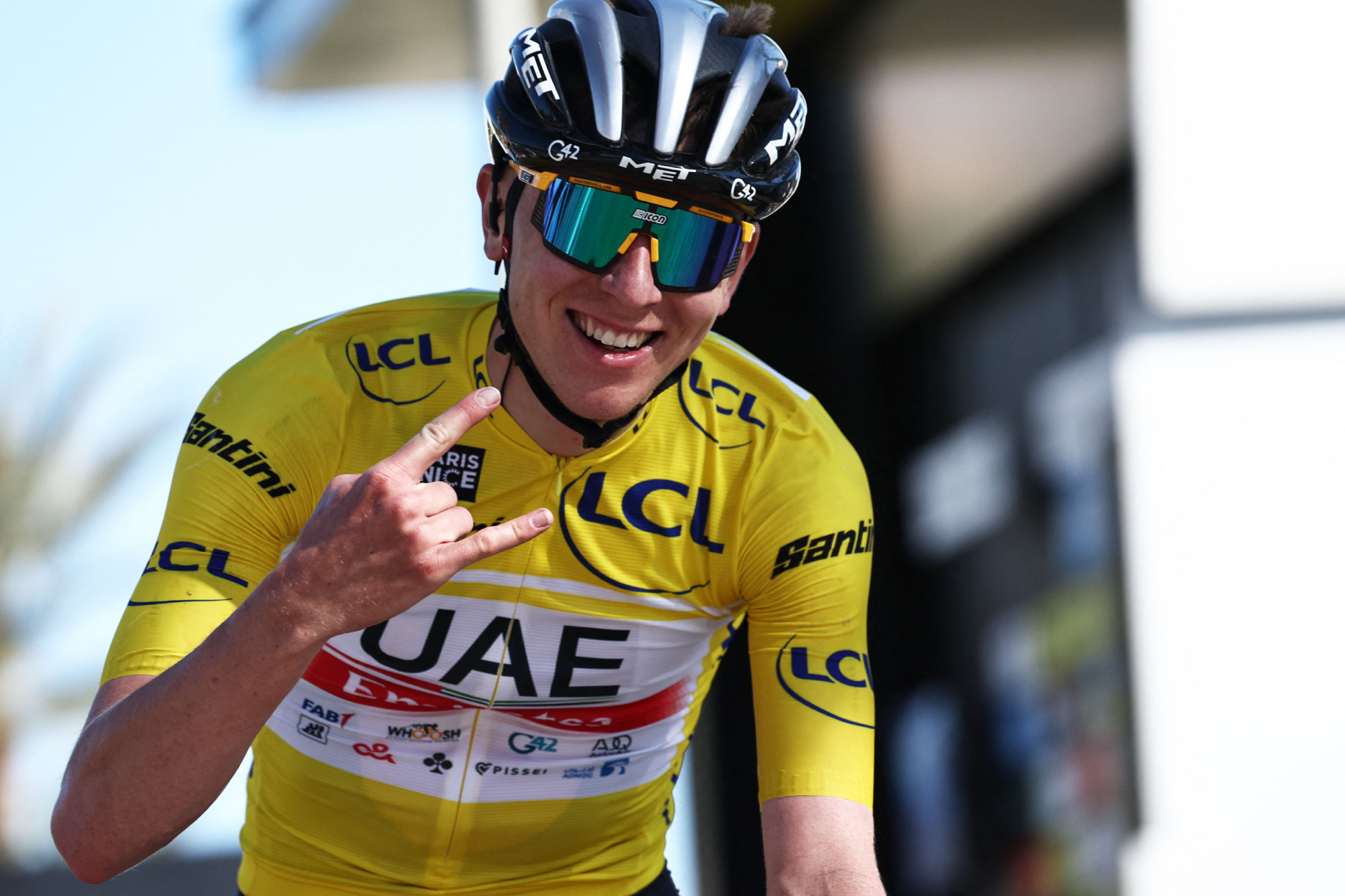
Head to any race and you’ll find an eclectic mix of personalities, even if everyone seems uniformly serious on the start line. Tom Southam is a DS at EF Education-EasyPost: “In general, the best guys can seem introverted because they’re extremely focused, more so than anyone else. A lot of the time, it’s not introversion, it’s just focus.” Southam, a former pro himself, highlights a noticeable difference. “The exception to the rule is Rigoberto Urán. He’s been our leader [at EF Education] for a number of years, and he is very extroverted. Compared to Richard Caparaz, character-wise, they are chalk and cheese, but on the bike they’re the same type of rider. So there is space for both.”
In some ways, cycling is well suited to introverts. This was the experience of Dutch cyclo-cross rider Jens Dekker, who as a teenager, riding in the same team as Mathieu van der Poel, was tipped for success. “I think I’m a good example of what it takes to live a serious pro life,” says Dekker, “as I don’t need social interaction to keep going and I’m happy staying in a hotel for three weeks. Road cycling has evolved into a place where if you want to be good, you have to go away for 250 days a year. In this way, it’s easier to be introverted, as you have the benefit of dealing well with isolation.”
Through his decades of coaching at the highest level, experienced Australian coach Brian Stephens, once of British Cycling and now of Jayco-AlUla, has frequently pondered whether introverts make better cyclists. “Sprinters are extroverted, and GC riders are introverted – that’s how it tends to be,” he concludes. “I’ll prove it to you: Mario Cipollini wore a zebra skinsuit; would you see a GC rider doing that?”
Stephens continues: “I’ve often asked myself: is it the hours on the road that make you introverted, or because you need to do that work that encourages introversion? Sprinters ride 10km and to them it can feel like riding 300km of Milan-San Remo, but the way they have to race – aggressively and with split-second decisions – makes them more extroverted. It’s a chicken-or-egg argument.”
Stephens is generalising, of course – and Irish sprinter Sam Bennett told me last year that he regards himself as “a bit of an introvert.” He explained: “In [team] meetings that last a full day, even though I’m not physically doing anything, I am mentally drained from interacting with people all day. I will go and hide somewhere for 30 minutes and recharge.” This is a vivid illustration of how introverts have their energy sapped by social interactions, whereas extroverts are recharged by it.
Introverts need egos
Whether you resonate more with Pogačar or Vingegaard, we all sit somewhere on the introversion extroversion scale – and it can depend on circumstances. For example, a lively character and natural leader would display more introverted traits the first few times they go out riding with their new club or team, only beginning to be extroverted once comfortable within their new surroundings. Sometimes we feel obliged to embrace the personality type we least associate with.
“Look at Pogačar,” says sports psychologist Victor Thompson. “He says what he wants, gives high-fives – there’s energy, fun and interaction between his team-mates. Extroverts like this bring people along, making those around them more engaged to work harder, but even Pogačar has to be self-motivated, have the ability to train alone, cope with injuries and rehab, and deal with times of greater isolation than he would like.”
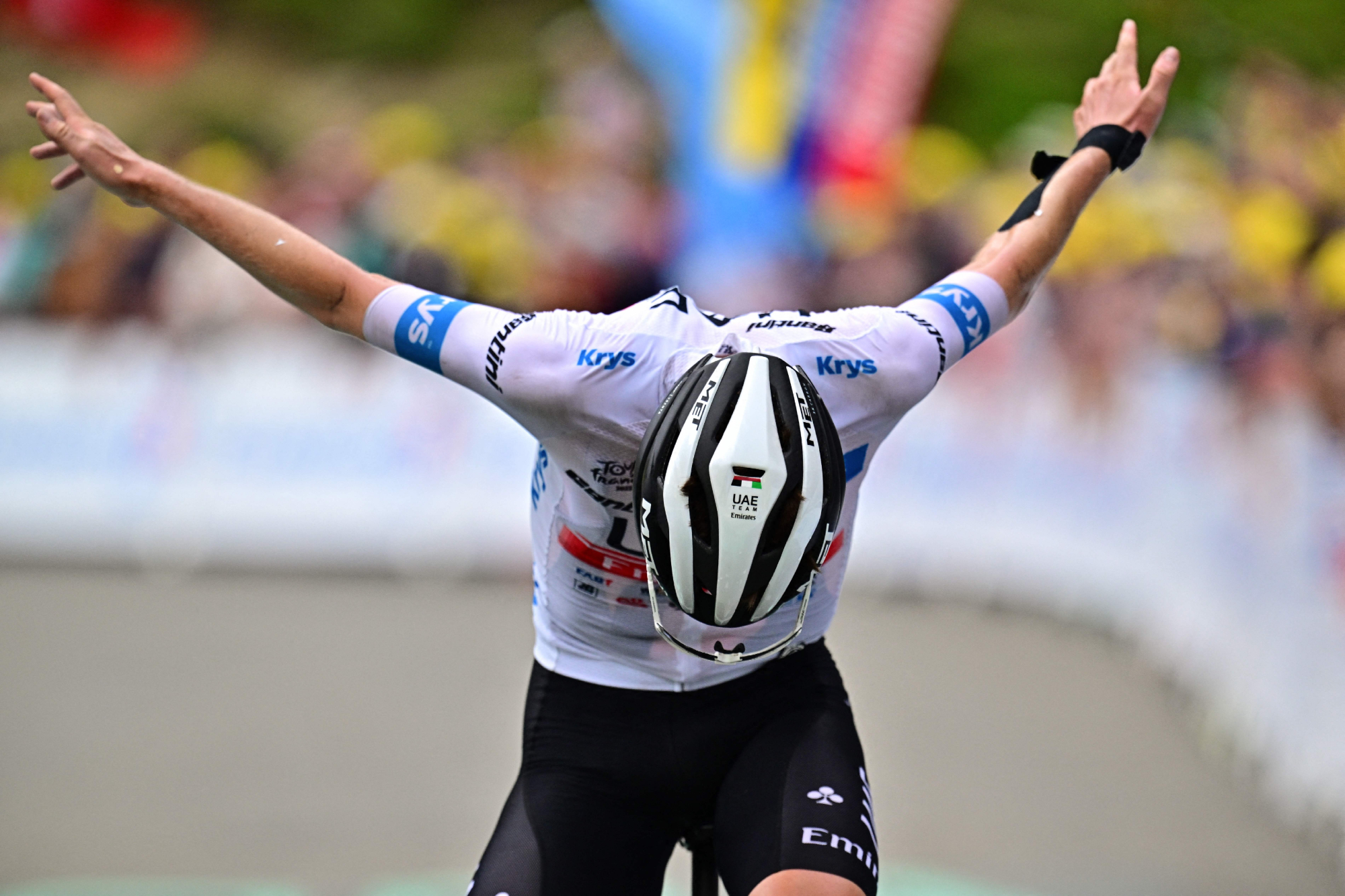
There is no doubt that cycling is becoming ever more methodical and professional. Does this mean it is homogenising its athletes, forcing them to abide by the same strict parameters and approved character traits? Is individuality being squeezed out? This is a concern for Southam. “In the early 2000s, guys trained as hard as they could go, and then drank as hard as they could drink,” the Briton tells me. “The Vuelta a España was basically a party, full of characters who used to get away with all sorts but who wouldn’t exist in today’s cycling where riders are extreme in totally different ways like being fastidious in weighing food. Now we can monitor sleep, training, everything, and it’s changed the type of person who now does the sport at a high level.”
It’s not quite one-size-fits-all, but there are certain traits that all modern day top pros, introverts and extroverts alike, must possess: determination, commitment, willingness to make sacrifices, etc. “Everyone is extremely driven – it’s fundamental,” emphasises Southam. “When you’re young and you’re not going out on a Friday or Saturday night, you have to be strong willed and unsociable. That takes a lot of work, and quite a lot of it is guilt driven.” This mention of guilt catches my attention – how does feeling guilty play a part? “It's like being an Orthodox Christian or strict Catholic, religions that work on guilt. You follow certain rules for the fear of the recriminations that would follow if you didn’t. It’s exactly what cycling is like: if you don’t train, you feel guilty for missing it. The same if you eat too much. Guilt can be a driver, but riders have to be careful it doesn’t go too far and lead to problems, such as eating disorders.”
In pursuit of a goal – however big or small – riders sometimes have to be selfish. Whether it’s skipping household chores or insisting on hours away from the family at the weekend, cycling requires a commitment to one’s own ambitions. “I’ve dealt with so many families of riders who’ve said, ‘He’s so selfish – he has to go for a ride and leave the kids with their mother’,” says coach Stephens. “I tell them that it’s part of the game: you have to be selfish to be a road cyclist. You have to be focused on yourself. You come first.” Is this selfishness driven by ego? “Yes, and success just feeds the ego,” Stephens replies, “and to be successful in cycling, you need an ego. A rider wins a Classic – what’s next? They want to win number two, to be the best in the world.”
This reminds me of what former world champion Mads Pedersen told me last December. “The ego of a cyclist, and especially mine, is super high,” said the Dane. “But I can't run away from it. I think you also need it to be at the top [and] I believe it has taken me this far in cycling.” Pedersen is a definite extrovert, but egos are prevalent across the introvert-extrovert continuum; Chris Froome didn’t win seven Grand Tours without believing he was superior to the rest.
Fear doesn’t discriminate
In cycling teams, a rider’s personality – and the size of their ego – affects everyday racing decisions, according to psychologist Thompson. “Introverts are more likely to follow what they’re being told,” he says, “or quietly rebel – they wouldn’t contradict their DS or team-mates about attacking earlier than was the plan or following through with a crazy idea. An extrovert is a stronger character, and they’re less concerned about making noise – they may even get a kick out of rebelling – so they’re more likely to be disruptive or state a view, rather than silently going along with it.”
So if extroverts are more likely to challenge leadership overtly, what about risk-taking? “There are a lot of things for every type of rider to be fearful of: crashing, attacking, failure,” says Stephens. “Many riders battle with it. You can’t be stupid, but you have to accept a certain amount of fear.” Pierre Latour, a French rider who won the Tour de France’s young classification in 2018, admitted to Le Parisien this summer that “I’m scared to death when going downhill.” He added: “It’s all in my head, I know, but it’s stronger than me. I am completely paralysed.”
These comments resonate with Dekker, who retired from road cycling in 2020, aged 21, and recently began a racing comeback in cyclo-cross. “I’ve often thought I was too aware of the risks to be a road cyclist,” he confesses. “I don’t like going downhill at 70kph with 100 other people. Either you don’t have fear, or you deal with it and accept that there could be serious consequences.” Being scared is the norm, according to Latour: “Others are as scared as me, but don’t want to admit it,” he added. “I imagine they don’t want to be yelled at by their bosses.” What Latour highlights is that no one is immune from fear, whether they’re a shy introvert or a show-off extrovert.
Protocol trumps personality
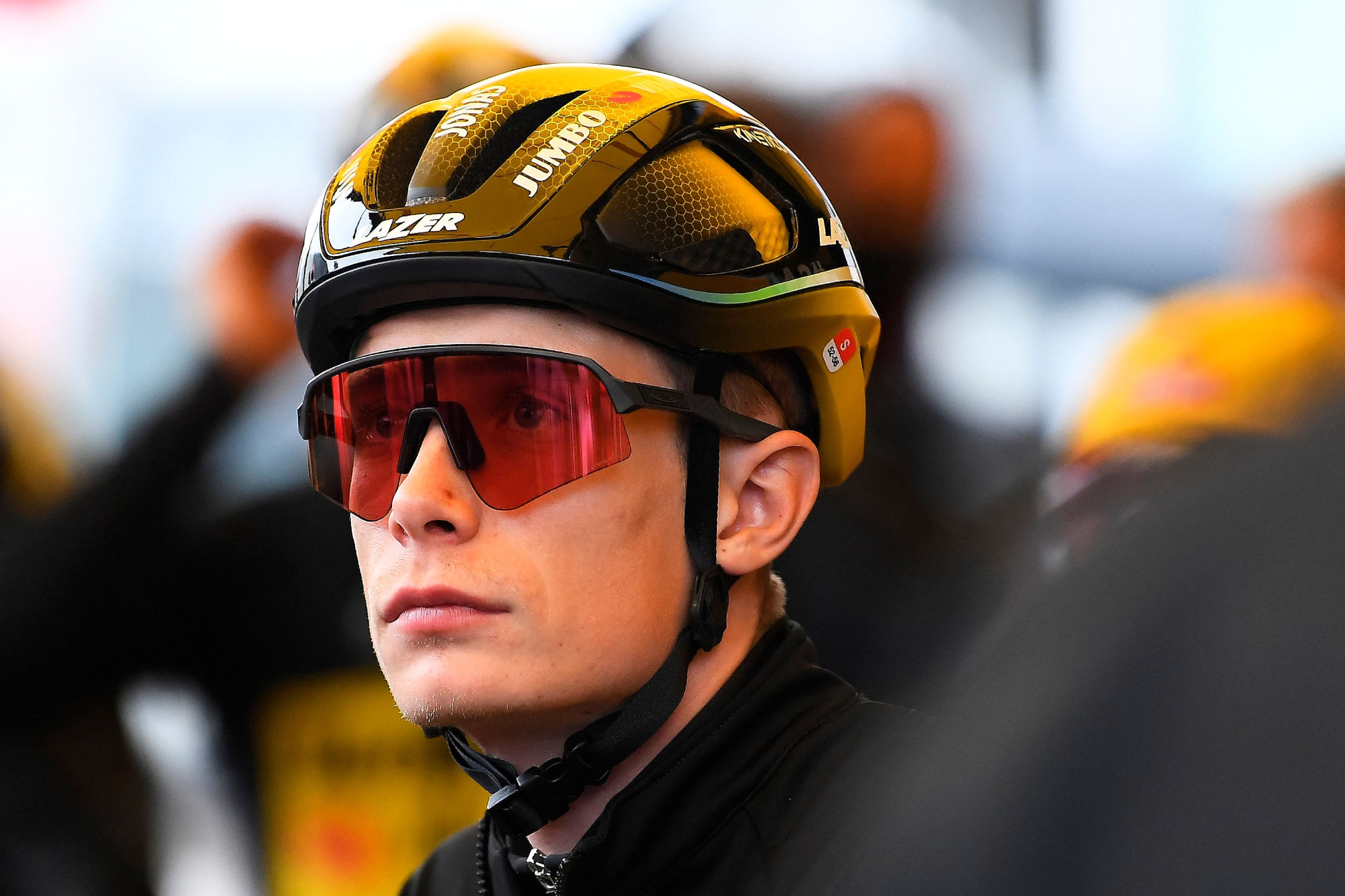
Success is dependent on many variables, and personality type is just one factor. According to Thompson, introverted characters are at an initial disadvantage, with more hurdles to overcome. “Introverts, generally speaking, are more likely to be anxious, unsettled, and if they’re forced to do things they aren’t comfortable with, or be in the public limelight, it can be a mental distraction from their task,” he says. “This increases adrenaline and cortisol in the body, and these are not good hormones for normal and biomechanical functioning. It can be a factor that negatively impacts the mental and psychological harmony of the rider, which ultimately impacts their cycling performance.”
But it’s clear that the intense attention and pressure that comes with competing in the Tour de France circus hasn’t hindered Vingegaard and Froome, multiple winners of the sport’s biggest race. “Yes, but that intense support, all that shouting, the autograph-hunters, people’s online opinions, it can be overwhelming and disruptive for an introvert,” says Thompson. “For extroverts, that attention is like free energy, and that support emboldens them.” It’s a complicated picture, then, and riders who are more introverted aren’t necessarily disadvantaged. In sports psychology research, no evidence has been found to suggest that introverts or extroverts have a clear advantage in individual or team sports. Pro cycling, with all those lonely training hours, might appear unglamorous for a swashbuckling extrovert, and meanwhile being the centre of attention in a 30-person team might seem intimidating for a shyer character, but there are high performing examples of both types.
What is noticeable is that, as training becomes ever more meticulous and success hinges on even finer margins, the demands placed on top-level cyclists have converged. It doesn’t matter if you’re an extrovert like Pogačar or an introvert like Vingegaard, you will have to follow the same strict regimes and parameters to reach the top – personality is becoming subservient to protocol. An introvert has to be able to overcome their shyness, while an extrovert has to know when to keep their exuberance under control. “Whatever level you’re riding at,” concludes Thompson, “you should aim to combine a bit of both personality types.
Introvert or extrovert? Take the test
Which best describes you?
Joining a group ride where you don’t know anyone, you:
- a) Feel excited and look forward to some decent chatting.
- b) Feel OK about the ride.
- c) Feel anxious and wonder if you’d prefer going out for a solo ride.
When it is time for your turbo session, you:
- a) Message your buddies to make sure they’re joining you on Zwift.
- b) Wonder if anyone else will be on the platform at the same time.
- c) Get on with it solo without considering anyone else.
There’s an evening of cycling talk with a pro or top coach, you:
- a) Call around to see who else is going and suggest pub afterwards.
- b) Wonder who else might be there but don’t mind if they’re not.
- c) Think about how interesting the talk will be but slightly dread having to talk to others there.
Mostly As = extroverted Mostly Bs = neither Mostly Cs = Introverted
Big characters: cycling’s wildest extroverts
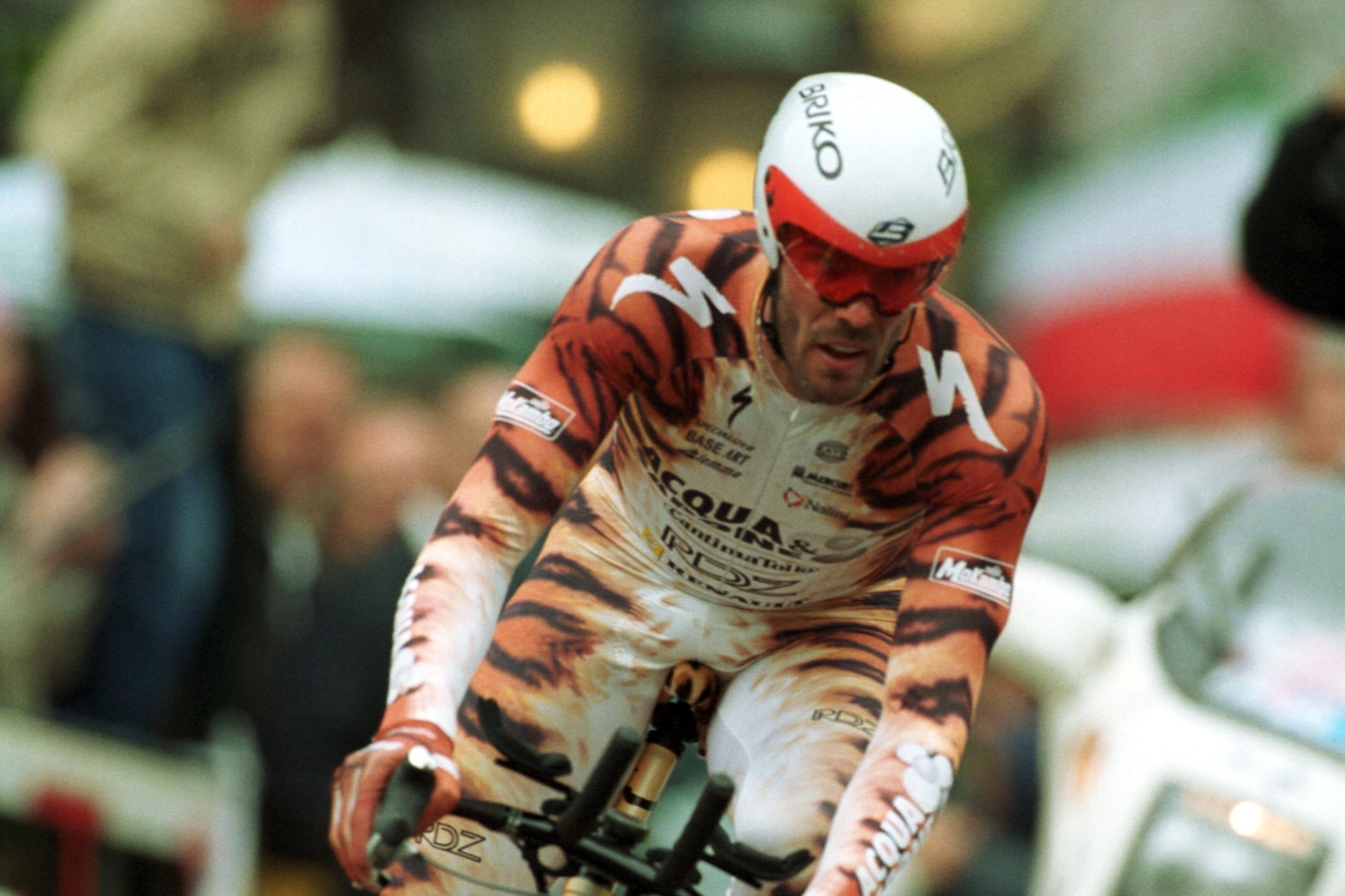
Frank Vandenbroucke: the late Belgian’s life was characterised by sporadic phenomenal performances, excessive drinking, doping and recreational drugs, and plenty of disagreements. He died aged 34 as a result of a double pulmonary embolism.
Jack Bobridge: a two-time Olympic medallist, the Australian got a large tattoo of a clock on his chest in the build-up to his unsuccessful Hour record attempt in 2015. Renowned for his partying and excessive behaviour, he was jailed in 2019 for dealing drugs.
Mario Cipollini: The sprinter who invented the leadout train also introduced yellow shorts to match the yellow jersey (and got fined by the UCI). Known for his flamboyant lifestyle, he was jailed in 2022 for three years for domestic violence and stalking.
Cecile Uttrup Ludwig: renowned for her interviews that spiral off on unprompted tangents, the Dane’s theatrical performances and permanent smile makes her a box office hit.
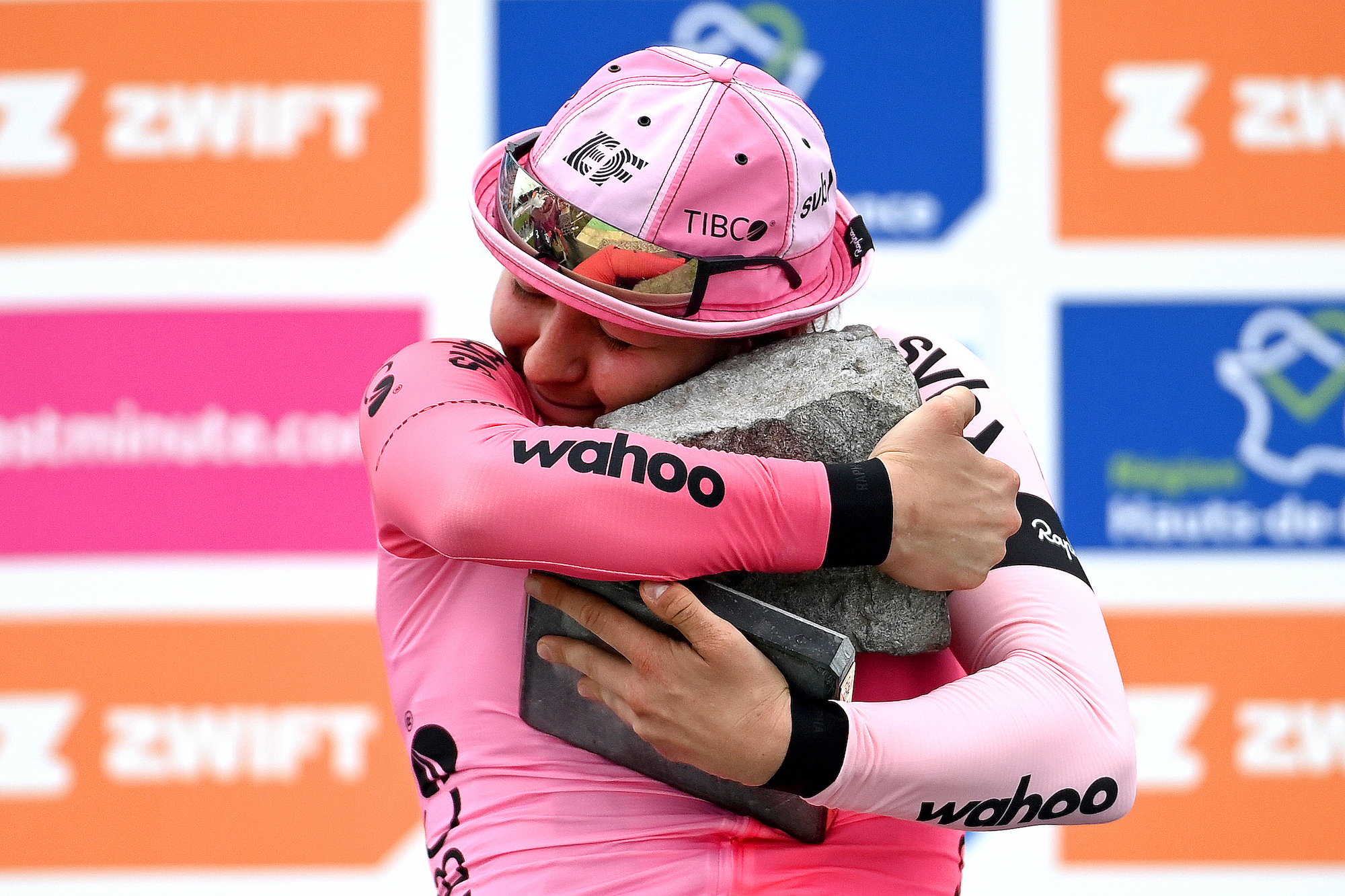
Alison Jackson: the reigning women’s 2023 ParisRoubaix winner is perhaps better known as being the peloton’s TikTok star, forever dancing and singing, and lighting up every room she walks in.
Shifting boundaries: ‘Personality isn’t fixed - change is possible’
Introverts and extroverts aren’t fixed in their personality type – each can adapt to changing situations and demands. Sports psychologist Victor Thompson explains:
“A good team manager should be encouraging introverts to have more opportunities, and to be more extroverted in terms of their interaction with teammates, staff, the public, and to improve on their social ability. If you’re more conscious of the need to constantly develop, and understand that these traits are a necessary and positive part of being a pro cyclist, then they can blossom even more.”
For extroverts, it’s about accepting that social interaction isn’t always available. “They don’t become more introverted, but they should learn how to be more independent and how to manage on their own. If they become more successful, they get even more opportunities to be with people, but when they need to train alone or go through rehab at a time when their team-mates are all on a training camp together, naturally that takes a lot more effort and it’s something for them to work on.”
This full version of this article was published in the print edition of Cycling Weekly. Subscribe online and get the magazine delivered direct to your door every week.







